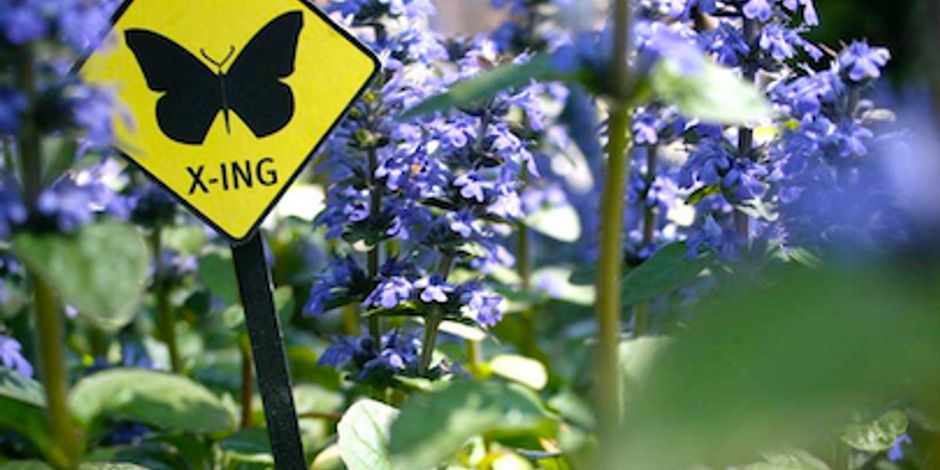The Pollinator Pathway

Hi! I'm an artist and designer, and several years ago I started a project called the Pollinator Pathway. Its a mile long, twelve foot wide corridor of pollinator friendly gardens being built in planting strips along Seattle’s Columbia Street, between Seattle University’s campus (at 12th), and Nora’s woods, a pocket park on 29th. Spanning one third of the city’s width, the project draws a line of plant life between these two larger public green spaces, connecting otherwise disconnected urban land patches.
A third of our food supply depends on pollination, and we have come to rely heavily on one species, the honeybee, to pollinate our major crops. Dependence on one species makes ecological systems fragile, as has become clear with recent massive honeybee declines due to Colony Collapse Disorder.
Honeybees, a Eurasian species brought to America by European settlers, are one of the most well-known pollinators, but they are not the only ones. There are hundreds of thousands of native pollinators in the world, pollinating not only many of our crops, but 90% of the planet’s plants.
The Pollinator Pathway’s goal is to support native pollinators by learning about and choosing plants that they utilize, with the understanding that healthy native pollinators and connected landscapes support the stability and health of our food supply and ecological systems.
In a broad sense, the project looks at the larger systems that make up our world, investigates how they work, and creates a real-life platform to share information about these systems and their importance. While pollinators are the namesake of the pathway, it is plant life that binds this project together – the history of plants and historical biodiversity of the region, the relationships of plants and pollinators in farming, and the rise of cities and shifting land use patterns that have accompanied the spread of humanity on the planet.
Part renegade park and part educational platform, the Pollinator Pathway merges science, art, systems-thinking, urban planning and landscape design and has worked with hundreds of volunteers and students in building the gardens so far.
We've successfully built 12 gardens, and have raised funds for another 12 to be built this year.
And, I'm applying to the Awesome Foundation for help building one new garden on the mile!